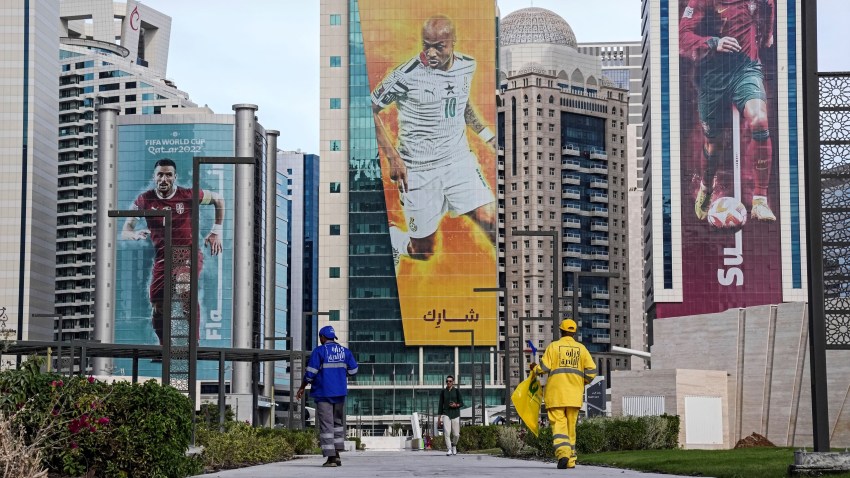DOHA, Qatar—As the 2022 FIFA World Cup enters its knockout rounds, Doha has become quieter than it was during the tournament’s group stage, when fans of every participating country were visible on the streets and their presence and celebrations brought color to a typically tranquil environment. The subdued atmosphere surrounding the matches in the tournament’s knockout stage increasingly mirrors the waning public debate around geopolitical issues—particularly Qatar’s poor human rights record—that received significant attention in the runup to the World Cup and during the tournament’s first two weeks.
But the diminished intensity of the debate does not suggest that the issues that were raised have vanished or lost salience.
The conditions of migrant laborers employed in Qatar generated a lot of outrage, particularly but not exclusively from international human rights organizations almost immediately after Qatar was selected in 2010 to host the World Cup. In the runup to this year’s tournament, there were conflicting reports over the number of deaths of migrant workers hired to build stadiums and other infrastructure. But there was general consensus about the poor conditions in which they worked to build the infrastructure needed for the tournament. Qatar has taken steps to improve conditions for migrant workers in the country such as by replacing the so-called kafala system with contract-based employment, but many of them continue to work 10 hours a day, six days a week, while earning as little as $2 an hour.

